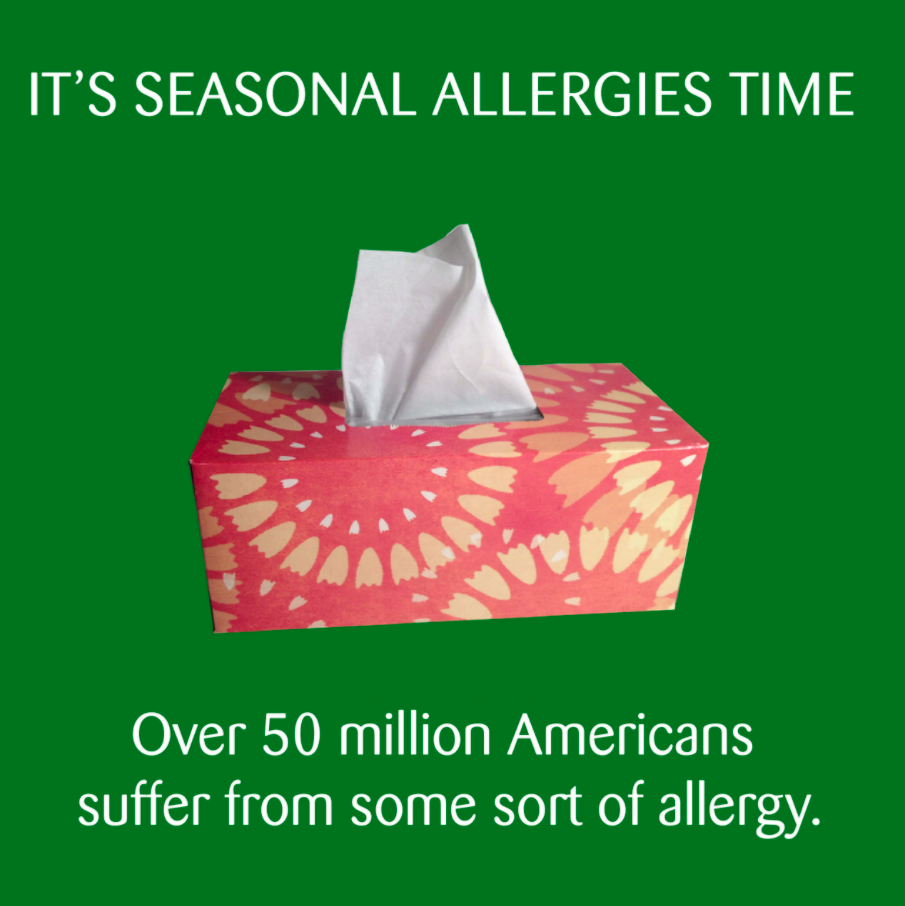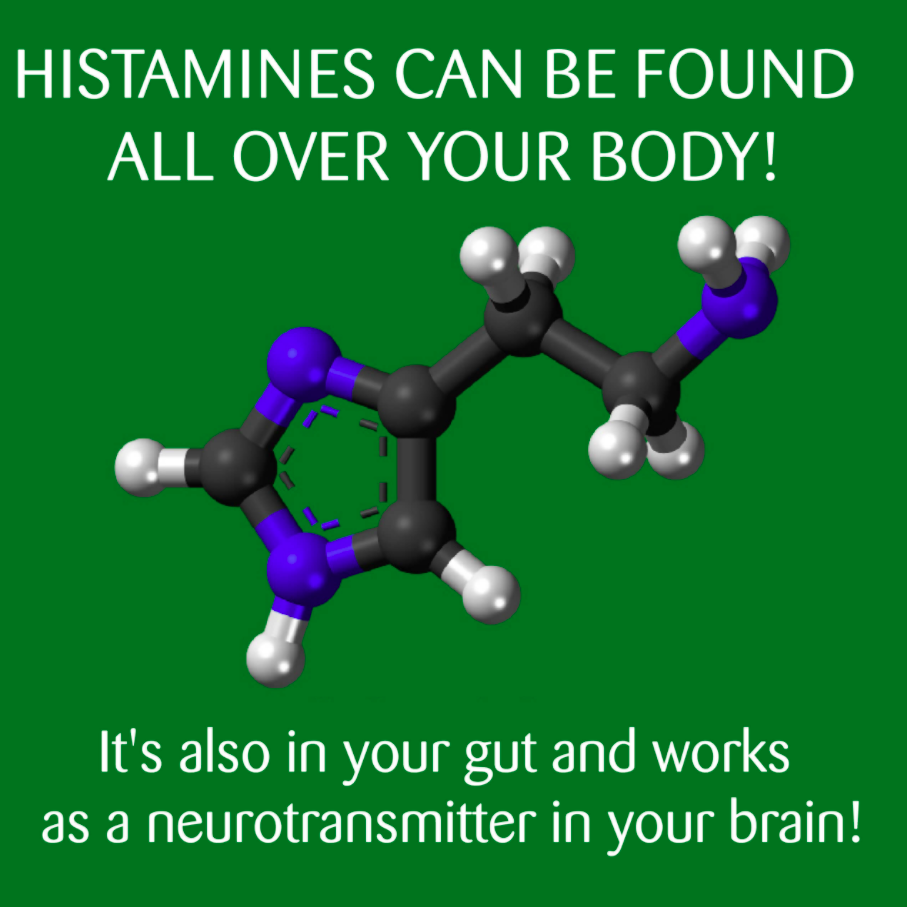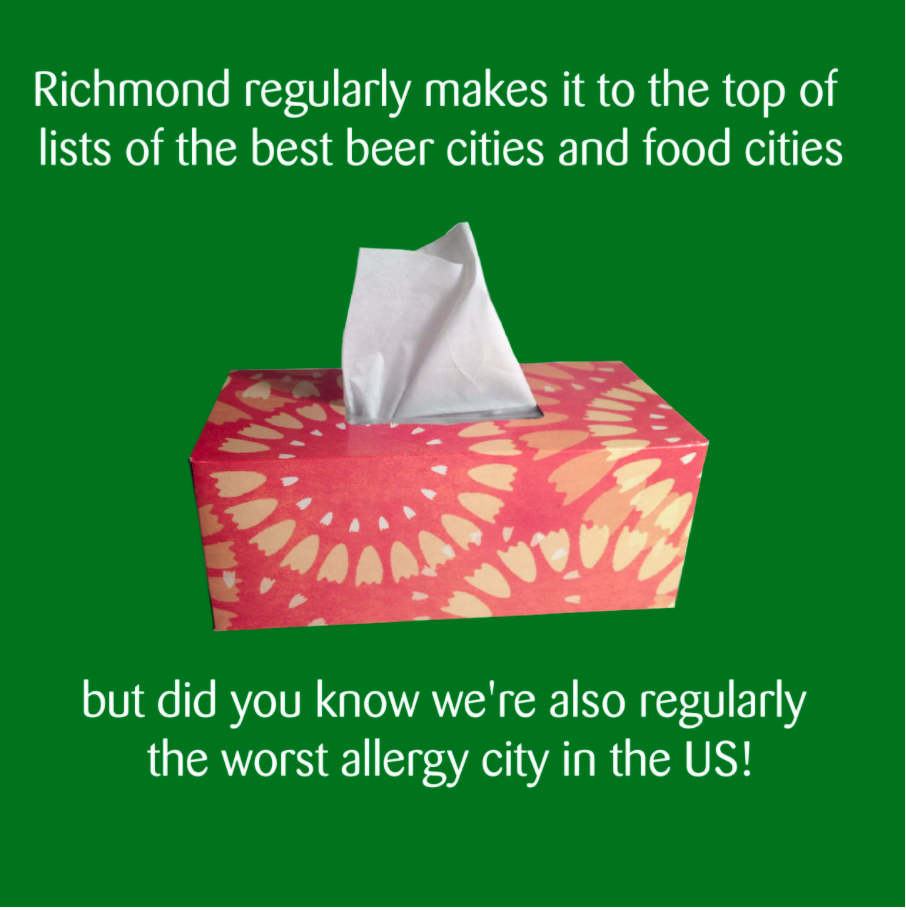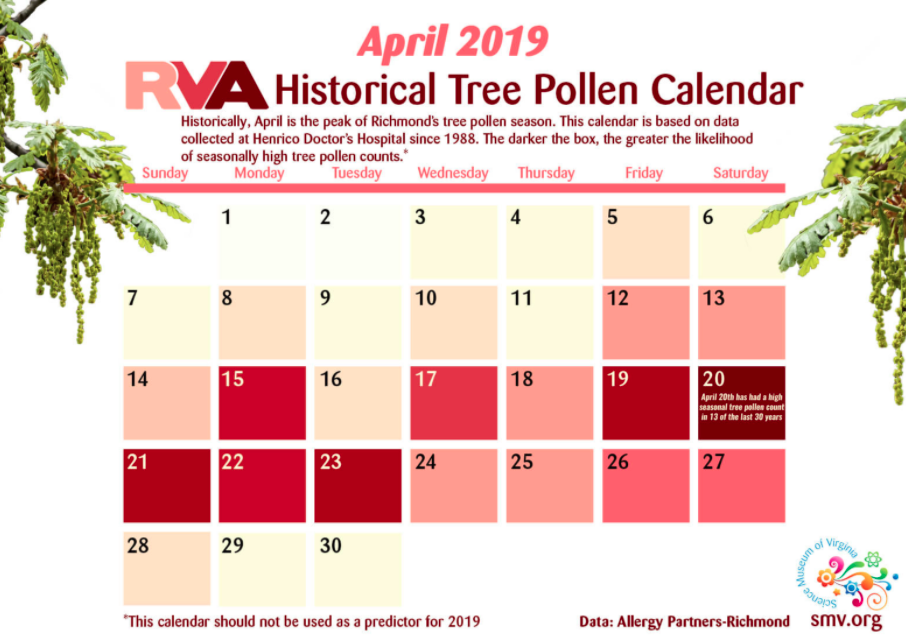Ah yes, springtime is here! The weather starts to warm, trees and flowers begin to bloom, and a lot of us begin our annual run-in with seasonal allergies! This time of year, there are a lot of people taking allergy medicines, but what’s going on when you take these pills? How do allergy medicines work?
First of all, allergies are a pretty common problem for many individuals. Over 50 million Americans suffer from some sort of allergy, and many of us experience what are known as seasonal allergy symptoms - like coughing, sneezing, itchy eyes, and runny nose during the spring or fall.

Seasonal allergies are different from food and insect allergies, which can cause more serious issues like rashes, hives, breathing trouble, asthma attacks, and even death. Allergies are caused by our bodies thinking they’re doing a good thing - that is, fighting off something that’s attacking us. However, most of the time, the allergens that cause these uncomfortable symptoms are harmless.
A lot of us take some sort of allergy medication to manage our symptoms at this time of year, commonly known as an antihistamine. But how do these pills really work? To begin the journey through seasonal allergy science, we must first begin with a compound made out of only 17 atoms: histamine. Histamine is in our body all the time – it’s in our brain, our stomachs, our feet, throat, mouth, and nose, all over the body. It usually helps a lot with wound recovery.

Histamine release does two things: first, it promotes blood flow to affected areas - this increases the body’s ability to attract other key members of our immune system to the areas that need attention. Secondly, it promotes mucus production, which traps pollen and dust particles. Unfortunately for seasonal allergy sufferers, our body sometimes launches an immune response of histamines to the nose, throat, eyes, and lungs. This can make us feel sneezy, wheezy, itchy, and teary-eyed when trees like oak, cedar, birch, and pine release their pollen, usually from February through May.

Luckily, the stores are ready to sell you some temporary relief. So what do these medications do? This class of antihistamines - specifically H1 receptor antagonists - block histamine’s ability to activate the symptoms we suffer from, letting us all breathe a little easier at this time of year.

That’s the quick scientific walk-through on the relationship between us and the world around us in terms of seasonal allergies. Some folks keep mentioning local honey as an alternative, but there have yet to be any scientific studies that show the benefit of local honey on allergies. The less sedating over the counter antihistamines, however, work within our bodies to decrease the symptoms we experience during pollen-heavy parts of the year without causing drowsiness.
There you go, folks. Science, hard at work making your springtime a little less a-pollen.


